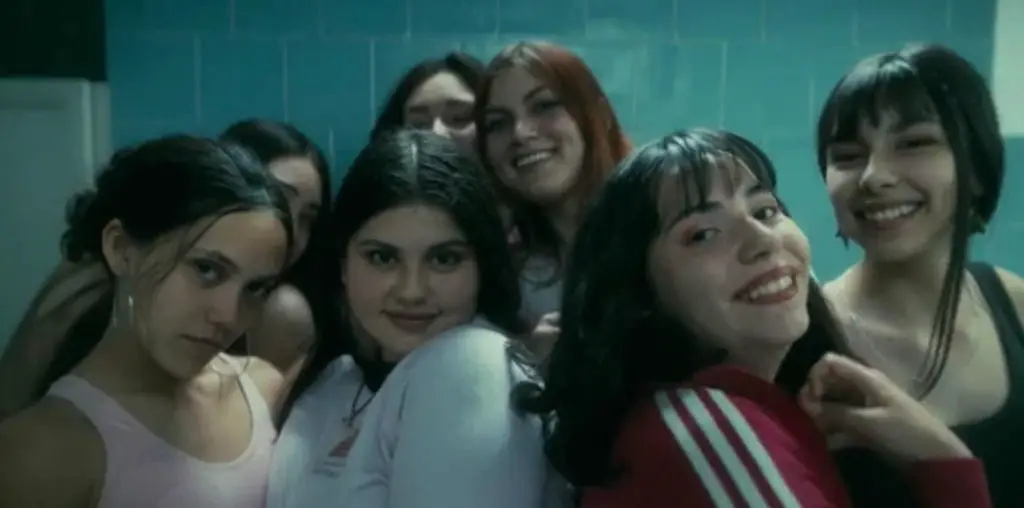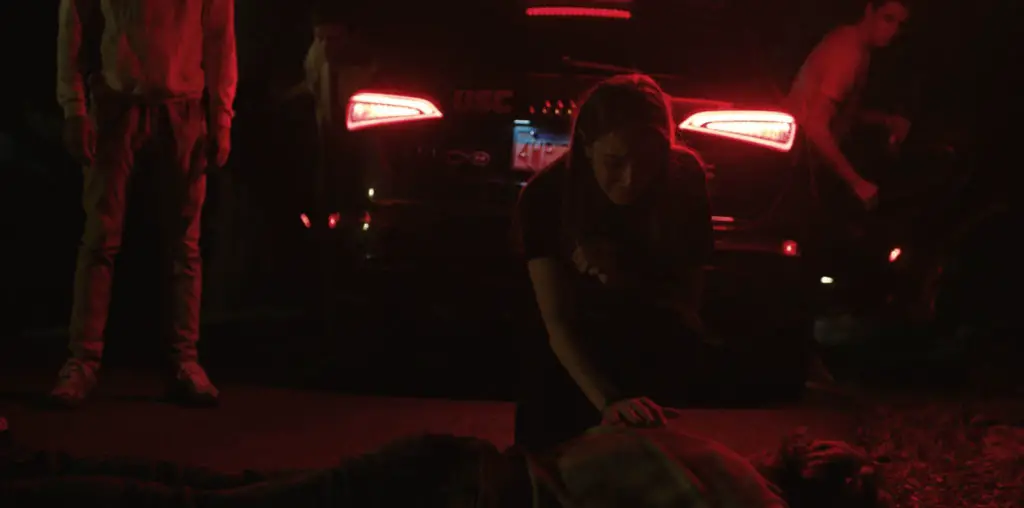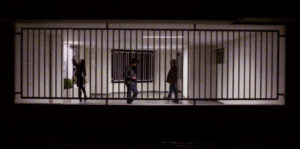
Crime Scene is sustained by the barest of narratives, but co-writer/director Pedro Tavares rewards patient viewers with an unsettling sense of creeping trepidation. It’s the holiday season in Rio de Janeiro. A solitary woman smoking a cigarette is in the foreground before a tree draped in lights. The take goes on for a long while without substantial movement. This sets the tone for the film we are about to watch. Later, a mysterious woman is killed in a swanky condo. A nondescript young man is seen in various sequences lurking around the complex before the police are eventually called in to assist in the investigation of the killing.
Tavares and co-writer Gabriel Papaléo draw inspiration from films like Michael Haneke’s Caché with its minimalist approach. The vast majority of the shots are static and rarely contain much motion in front of the camera. The overall effect is akin to that of security footage as Papaléo, who serves as DP, films the environs around and in the condominium as if the complex is the main character in this brief tale of murder. It’s undoubtedly chilling, and the stillness provided by the long takes and overall lack of exposition instills a meditative state at times.
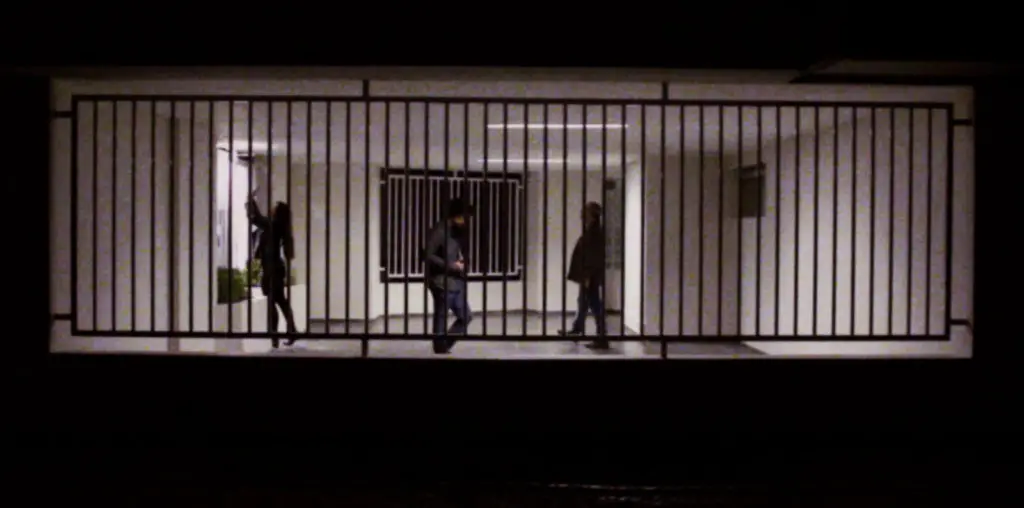
“…a mysterious woman is killed in a swanky condo.”
Crime Scene is certainly not for everyone. The long periods when there’s no motion or activity to speak of can be challenging for some viewers, to say the least. It’s not until around halfway through that we actually meet the police coming to investigate the scene of the murder, albeit at a distinct remove. We barely see their faces and are only privy to brief snippets of banal conversation that could easily be relegated to background noise. As a result, we’re largely kept in the dark as to the machination behind the homicide and its aftermath.
Herein lies the frustration with the film. We’re not given enough to grasp onto, no matter how effective the formal choices happen to be. The lack of activity happening within the frame makes the viewer instinctively feel the passage of time, and we are on pins and needles, waiting for the next shoe to drop. The problem with much of the film, though, is that it never really does. Without at least a modicum of characterization, it’s difficult for us to connect with the events on screen, which is why it’s so hard to maintain this formal approach for an extended period of time.
Had Tavares managed to successfully blend his impressive development of atmosphere with some novel character motivations, Crime Scene would have had the makings of a daring and adventurous Brazilian crime drama. He has half of the piece but is still missing that oomph that comes with developed characters who we ultimately care about. As it stands, the characters are little more than abstractions in the service of the filmmaker’s drive to deliver a singular experience. On that part, Tavares definitely succeeds, as, at its heart, the film’s a memorable and eerie work because of his meticulous mise-en-scène and the inescapable dread that he instills throughout.
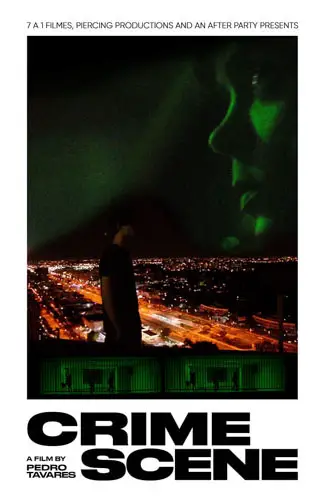
"…a singular experience."
